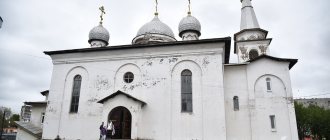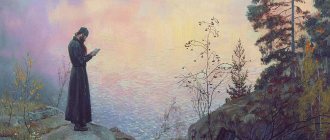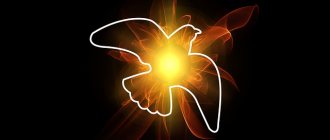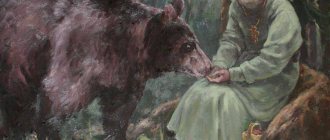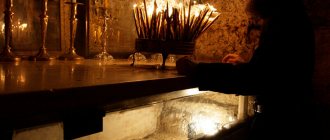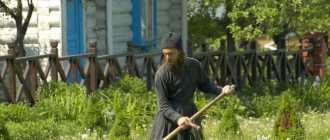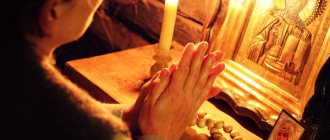From the first to the last day in his monastery, this saint was an image of perfect obedience. The Monk Simeon of Athos (whose photo will be presented a little lower) lived in a monastery with a cenobitic charter for 46 years. He constantly prayed “to the point of great tears” and turned his life into a great feat out of love for his Lord. Monk Simeon of Athos never went into seclusion and did not retire to desert areas, since he considered all this to be auxiliary means, but not the very goal of Christian life. However, at the same time, he was very far from worldly life.
Monk Simeon of Athos: biography
In the world his name was Simeon, after becoming a monk he became Silouan. He was born in 1866 in the village of Shovskoye, Tambov province, in the pious family of the poor peasant Antonov Ioann. His parents were very hardworking, wise and meek people by nature, although they were illiterate.
The elder himself later recalled that his family was friendly and large; they lived very poorly, but whenever possible they tried to help the poor and hungry, sometimes even giving away the last thing they had. They received strangers with great interest and cordiality. Father often talked to them about God and Orthodox Christianity. These conversations could not pass by the receptive soul of the young lad.
Helping Elders
From childhood, Simeon helped his relatives, of course, to the best of his ability, his brothers - in the construction of the landowner's estate, and his father - in the field. And, most likely, it was for this reason that he left his rural school, where he studied for only “two winters.” However, this did not stop him in the pursuit of knowledge, which was always inherent in him.
The Antonov family was very pious, inextricably linked with the rural church, to which they constantly went to services. This, from infancy, instilled in Simeon a sense of reverence for God’s word, and from this his soul was filled with a sense of Christian humility and various virtues. In the temple he learned church literacy, concentrated prayer and careful study of the book “Lives of the Saints.”
Feeling God's grace with all his soul and heart, one day he decided to go as a novice to a monastery and then take monastic vows. However, this desire was not supported by his father, who believed that he first needed to serve in military service, and only then make this important decision.
Simeon could not disobey the will of his parents and continued his normal life. He was only 19 years old then. He soon forgot his pious intention. He, young and handsome, like many of his peers, began to succumb to various temptations of worldly life.
Life in faith. Growing in Humility through Obedience (Part Two)
We continue publishing memories
about the years of his spiritual search and the formation of the hegumen of the Valaam Monastery, His Eminence Pankratius, Bishop of Trinity, and his friend Hieromonk Simon (Bloodless), writing under the name of the monk Simeon of Athos.
Monk Simeon of Athos (hieromonk Simon the Bloodless) began his journey in the Holy Trinity Sergius Lavra, and for a long time labored in the Caucasus mountains. Currently lives in one of the monasteries on Mount Athos.
In the book “Birds of Heaven or the Journeys of the Soul in the Embrace of God”, under the name of the architect Victor, knowledgeable people can easily recognize Vladislav, the future Bishop Pankratius.
Bishop Pankratiy of Trinity:
After the resettlement of people carried out by Khrushchev, local Tajik villages were empty: people from the mountains were sent to the plains to grow cotton. Many died - this is a tragedy for the entire Tajik people. The mountains have very good living conditions, resort conditions: there is clean air, water, a fairly moderate climate, a lot of greenery... When it became impossible to live there, and the Caucasus became the place of our search, we often remembered with regret the mountains near the Pamirs...
In the Caucasus there were entire villages of hermits who lived illegally, outside the law. Among them were experienced, spiritually mature monks. Local authorities fought the hermits carelessly, but there were serious situations when helicopters flew around the mountains in search of deserts and found cells - they were burned. It was hard to live, constantly hiding...
Monk Simeon (Athos):
The three of us spent the winter as usual. They prayed, lit the stove and cooked food. In the courtyard, they trimmed the grapevine and planted an alley of persimmons and Indian lilacs. They read their favorite books during the day and prayed at night. On a typewriter, I retyped “Frank Stories of a Wanderer to His Spiritual Father,” after which I first thought about my path in life and its ultimate quest. Victor had short Lives of the Saints, which we read in turn. In prayer vigils, we were guided mainly by the descriptions of prayers in the “Tales of the Pilgrim”, as well as the “Fatherland” of St. Ignatius.
In the morning and evening hours we prayed without Anton - our friend from the monastery at home - since he left early for work and came late. We especially loved the prayers at night, when the small light of the lamp comfortably illuminated the room. The street, which was already quiet, was already asleep. The smell of blooming lilacs poured through the open windows. If you sat holding your breath, you could hear your neighbor’s heart beating. Time seemed to not exist. There was only a long, wonderful night and endless prayer, from which I didn’t want to leave if it weren’t for my stiff body.
There were also funny episodes. Anton, sitting on his knees in prayer, gradually bent down, lower and lower, his head hanging almost to the floor, but did not let go of the rosary from his hands. The poor guy sometimes worked late and was very tired. Victor was strict and slammed his hand on the floor. Our friend shuddered and immediately straightened up humbly. Sometimes the Lithuanian began to snore loudly during prayer and Victor nudged him with his elbow:
- Pray, don’t sleep!
“I’m not sleeping...” he whispered.
- How can you not sleep if you snore?
– I can stay awake and hear that I am snoring! – Anton whispered stubbornly.
In the summer months, guests came to our “monastery” - believers from Moscow and St. Petersburg. We liked St. Petersburg people more - quiet, calm and intelligent. We became friends with some of them for life. I remember when a guest from the northern latitudes saw our green, unripe grapes and began to eat them with pleasure, I turned to him: “In two weeks the grapes will ripen and it’s better to eat them later!” To which I received the answer: “And here in St. Petersburg these are considered ripe grapes!” I had to buy ripe grapes at the market, and Maxim discovered their true taste.
Then for the first time, from our friend and grape lover from St. Petersburg, a serious researcher of the Russian North, I heard about the great Russian saint - St. Seraphim of Sarov. We didn’t have his life story; we had to limit ourselves to the stories of the St. Petersburg guest. The Mother of God appeared to the famous ascetic several times, which is why Diveevo is a great shrine. Now in Sarov, where the Monk Seraphim labored, a secret zone and security officers with dogs are driving away all pilgrims trying to get to the holy spring. Having heard such an exciting story, I turned to the monk with a request to look at this holy place at least once with one eye, which happened a few years later.
Bishop Pankratiy of Trinity:
The Monk Seraphim of Sarov, before becoming a great ascetic, lived for many years in a monastery, then in solitude - in the desert. He put all his strength into a difficult struggle with himself: with his sins, passions, with the “old” person inside himself. The same can be said about St. Sergius of Radonezh and other saints. They followed Christ, tried to fulfill His commandments, sought the will of God and followed it.
Holy ascetics achieved very high spiritual states, real holiness, their life was grace-filled, with God. Why am I so bad, why am I so far from God? In my opinion, the main thing is to always be faithful to Christ, not to sin deliberately, and to patiently endure everything that the Lord sends or allows. Remember your insignificance, strive to acquire humility, do not judge anyone, and generally expel hostility from your heart. Always remember God, live in such a way that the words of your prayers do not diverge from your deeds. If you realize your bad condition, then good - you have a chance to improve. If you are many years old, and you have not yet changed for the better, have not overcome passions, then do not despair. If you go to the Lord in the struggle for Christian life, then He will have mercy on you, even if you have not achieved holiness - what every Christian is called to.
Monk Simeon (Athos):
In those years, Victor and I did not have the chance to get to the devastated Diveevo, but the Lord providentially led us to the Trinity-Sergius Lavra, where St. Sergius became my favorite saint. I remember how on one of our trips we entered a temple filled with believers. In the corner, a silver shrine with relics glowed with multi-colored lights from lamps. At the shrine, the hieromonk served a prayer service to the monk. A small choir of singers stood right there, in the stasidia along the wall, and sang touchingly along with the priest. Having stood in a long line, we bowed to the relics of St. Sergius and kissed the glass, under which the monastic veil was visible. Everything in this ancient temple with ancient icons seemed to breathe and live with the monk. In addition, something else was felt here, some kind of sublime unearthly holiness that made the heart tremble.
– What an incredibly blessed place! – I shared my delight with Victor. -What amazing holiness!
Several years later I learned that nearby, behind an ancient iron door with a hole left by a cannonball, there was a place where the monk’s cell stood, in which the Most Holy Theotokos appeared to him. A feeling of inexplicable happiness slowly, as if preparing my trembling heart for the main meeting in life, began to take possession of my soul, as if it had long been yearning for this meeting and was expecting it. This feeling became larger and larger, unable to fit into the heart, until a cry of surprise burst from the chest: “Mother of God, how great is Your saint!” The meek life-giving grace of St. Sergius seemed to tie my heart to eternal spiritual unity with the monk and the Trinity-Sergius Lavra. The voices of the singers dissolved in the invisible breath of grace-filled tenderness that flowed endlessly from the relics of the holy saint of God. Tears of gratitude silently rolled down my cheeks. My heart cried and reported that it had found its earthly homeland - the Holy Trinity Lavra of St. Sergius, and the Heavenly homeland - St. Sergius, who had become so close and dear to me, as if he were my own father. From that time on, my heart began to belong to St. Sergius and, with him, to his holy monastery, not knowing what crucible of temptations he still had to go through.
The soul, free by birth, voluntarily falls into the slavery of lust and anger, assuring itself that they are inherent in it from the moment of its birth. How many souls have succumbed and succumb to these absurd assertions, considering these passions to be “natural”. But true freedom from lust and anger lives secretly in every heart and speaks to it with the inaudible voice of conscience, a voice that no depravity and no malice can drown out.
Bishop Pankratiy of Trinity:
Thirtieth anniversary of monastic tonsure
On July 3, 1987 - exactly 30 years ago - novice Vladislav Zherdev was tonsured as a monk with the name Pankraty at the Holy Trinity Lavra of St. Sergius
Georgians on the territory of Abkhazia, mainly the Georgian police, “did business”: they took some famous hermit when he went into the city to buy something (and the hermit was easy to recognize - hair and beard), brought him to their department , but they gave him the opportunity to inform the believers and named the amount of the “ransom.” The believers, of course, collected this amount, and everyone parted to the general pleasure. The hermit returned to his desert, and the policeman earned himself a pretty penny.
Monk Simeon (Athos):
With the closest of our friends, we made long hikes with prayers at rest and overnight, storming high mountain passes that I had the opportunity to recognize while working in Pestov. But we explored the most protected places in the mountains together with the faithful Victor. We became increasingly interested in secluded areas without roads or villages, in order to establish a permanent prayer base there in the mountains. We used Soviet geographic maps on our hikes, but noticing that they did not match the terrain and their accuracy was very relative, we soon threw them away and moved in the mountains, relying more on instinct and mountain skill.
One summer, about ten of us gathered on a hike, and at the general request, I took everyone to a forest reserve. We were pleased with the secluded gorge, which had been my refuge for several years; We spent the night in the garden of old man Jamshed, who had reclaimed his old abandoned plot by the river, which he had inherited from his grandfather. Then we followed the tributaries of the river to the Khazratishoh ridge and reached the village of Tavildara. When our detachment was traveling to Baljuvan in passing cars, it stretched along the highway for tens of kilometers.
Of course, in a large company there was always more fun and jokes than prayers. However, everyone's heart was peaceful and prayerful throughout the entire trek. The silence and silence of the mountains invisibly influenced our souls. We imperceptibly became more concentrated, our eyes and mind rested: our eyes from the bustle of the city, our mind from the inner whirlwind of thoughts. We felt especially good in the cherry orchards of Pestova, where many of my years were spent in happy solitude and tireless prayer. Inexpressible happiness, filling my soul, like an endless river, poured out over the entire world around me. The invisible consolation of grace breathed in our hearts. It was as if Christ was among us, not yet fully comprehended by each of us, but already unconditionally and completely becoming our only Savior and Helper. Victor even exclaimed:
– It’s so good here, it’s simply amazing! I don’t even want to leave...
- Why be surprised? What a place, Lord, - pure grace! – Maxim joined him. – I felt this only on Solovki...
This was the last meeting with Peshtova and at the same time farewell to carefree youth, simple youthful happiness and life in the grace and beauty of God's world. A new period was approaching, a period of sorrows and cleansing from the destructive passions of youth - vanity and, the most sophisticated passion, pride.
On the way to the mountains.
Bishop Pankratiy of Trinity:
Hermits appeared in Dushanbe, and I immediately felt: this is what I was looking for. They found out, came, met me in church, I invited them to my place, we got to know each other. One of them was already a schema-monk, the other was also a serious person. Then we set up our first cell in the mountains. There is such a place - Childukhtaran, there are really a lot of caves, grottoes, it resembles the famous Krasnoyarsk pillars, but much more - the whole region. This is a completely unique place: these weathered stone figures where you can easily hide. The only thing is that it is very close to Afghanistan.
Monk Simeon (Athos):
I also loved to pray on Iveron Mountain, in the chapel of the Mother of God, where the remains of an ancient temple were located. Her gracious presence was especially felt there. Believers told us that the appearance of the Blessed Virgin Mary took place on this mountain in the 19th century. Gradually, New Athos became for us a favorite place of pilgrimage and a spiritual home. God brought us to meet and become friends with believers in Abkhazia a little later. Comana still remained unknown to us, where the burial place of St. John Chrysostom was located and the relics of the martyr Basilisk were located, as well as the miraculous spring that gushed at the site of his torment.
After one of my trips, Gennady came to me and got a job in a computer equipment maintenance workshop.
“We need to talk in confidence,” he called me aside. – KGB officers have already come to my apartment several times: one old, the other young, very polite, from some sixth department for combating religion. They asked about you.
- So what? We're not doing anything dangerous! – I was surprised.
- But they think differently. They were interested in who comes to you, where you go in the mountains. The young man approached the shelf with books: “Oh, do you like astronomy? I also love!" An elderly man noticed my radio equipment and said: “Are you into radio? I'm also into it. It turns out we have common interests...” And then we got down to business,” the engineer grinned. - “Tell me, are you a Soviet person?” I say: “Soviet...” You can’t deny it!..
“And if you’re Soviet,” the old man explained everything to me, “then you must help the Soviet government!” I'm silent. “We ask you to inform us about the activities of your friends!” He named your names.
– And what did you answer them?
– I answered that, as an Orthodox Christian, I would not be their informant! So the young man even started jumping up and down in his chair out of anger. They say: “We were counting on you, but you let us down like that...” That’s how things are!
– Thank you, Gena, for warning us, we will keep this in mind. But you yourself know that we are not fighting the Soviet regime!
– I know, I know, but be careful!
I shook my friend's hand with gratitude:
– Don’t you want to join us?
- No, I’m somehow on my own. Come see me when you have time. If there is news from the KGB, I’ll let you know...
We broke up, continuing to see each other from time to time.
In Dushanbe, the lingering winter rains sometimes brought despondency, and with great pleasure we went to the extreme south of Tajikistan, to the small town of Kulyab, on the border with Afghanistan. The border climate in winter was dry subtropics and somewhat reminiscent of Afghanistan, with some kind of alienation and abandonment. But the warmth of the southern sun, the abundance of fruits and local sweet dates gave us a feeling of relaxation and maintained a prayerful mood.
Bishop Pankratiy of Trinity:
At the cave of St. Peter of Athos with the novice Elder Isidore. I was living at the church at the time: I quit my job because I couldn’t live without the Church, I simply couldn’t physically. I quit all my work, everything I was doing before, got a job as a watchman in the temple, they gave me a cell two by two meters, and I was happy. I lived there, prayed, looked after it, and tried to sing and read in the choir, and painted the roof... You could say that the monastery for me began in the world, in my parish.
When Father Superior found out that I was an architect and could draw, he immediately gave me the task of restoring old icons. I didn’t know how to do this, I just started studying from books how icons are restored, and then trying to paint new icons. I really liked this activity, although, of course, these homemade products can be called icons conditionally. But the love for icons and the dream of icon painting remained throughout my life. Even on Valaam I tried to start writing, but soon I received a call from His Holiness. In his characteristic, firm voice, he informed me that a decision had been made to appoint me Chairman of the Synodal Commission for the Canonization of Saints. My attempts to somehow avoid this fate were rejected in the most harsh way. I realized that I can forget about icon painting.
Monk Simeon (Athos):
While our home “monastery” was going through the stage of enthusiasm, life proceeded relatively calmly and misunderstandings were easily resolved by us. But from prayer to prayer, a zeal grew in us to delve deeper into the unknown to us, but interesting and fascinating, as we believed, “monastic” life, not knowing how much it was replete with severe and sometimes cruel trials from evil. It was just waiting for the moment to crush us, just as a storm crushes a nest of fledgling chicks.
For everything that happened, I have no one to blame but myself, since it was my behavior that caused the complete collapse of our “monastery.” My mistake was that I arrogantly began to consider my states of prayer as something deserved and acquired through my own efforts. Out of foolishness, I vainly believed that I was worthy of them, and they were given to me by God for eternal enjoyment. In addition, a passionate and strong passion for “Frank Tales of a Wanderer” did not allow us to see that in this fascinating narrative there is no description of spiritual warfare. When serious temptations from evil began with pride and vanity, which instantly turned into lust and anger, I fell into complete confusion and despair.
Changes also affected our relationship with the architect: he took an order from our Dushanbe church to paint a large icon of the three saints and worked hard on it. His work was a success and added confidence that the Church was the only refuge for him and for me in our grave temptation, which is what he tried to prove to me. My good friend began to persuade me to become a permanent parishioner of the St. Nicholas Church with him, but my wounded pride desperately resisted Victor’s advice: how could he leave me for church, what could he find there, and who would he communicate with there? But God soon revealed first to him, as the more humble one, and then, a few years later, to me, as the more proud one, that only in the Church and through the Church can one find the true Savior and Helper - Christ, who loved us and shed blood for our sins . And in this Victor helped me like no one else, for which I am forever grateful to him.
Bishop Pankratiy of Trinity:
We had one parishioner, he studied at the seminary, and I looked at him as if he were some kind of celestial being. He came and said: “Why don’t you go to seminary?” - “Who am I?” He says, “Get ready.” To be honest, I didn’t even think about the seminary: it seemed like some completely different world. But when they told me that I had to enter the seminary, I took the blessing from the abbot and began to prepare. And by the way, the rector, Father Nikolai, then told me an interesting thing: “You will be a bishop.” We recently met with him, and I “remembered” this to him and said: “It turns out you have the gift of prophecy.”
Monk Simeon (Athos):
During that period of our lives, we made an important discovery for ourselves, which greatly influenced our life together. We learned that there are miraculous ancient icons and that God greatly helps those who pray in front of them. The first such discovery took place in the Tretyakov Gallery, where we experienced a complete shock in front of Rublev’s icons “Trinity”, “Savior” and “Apostle Paul”. In addition to the extraordinary skill of icon painting, the irresistible gracious attraction of these icons aroused in the soul a strong desire to remain in sincere prayer. Our long standing in front of the museum icons was not very pleasant to the attendants, who kept coming up to us: “This is not a church for you here!” Stop praying, come on in!”
At that time, the Andronikov Monastery housed a collection of ancient icons from the 12th to 14th centuries. We visited this museum, as the monastery was then called, constantly when we were in Moscow. There were ancient images on display there, painted with such blessed power by old icon painters that to the heart they seemed not like icons, but shining windows into the Heavenly world. It was impossible for my heart not to begin to pray in front of them and not to delve deeper into reverent prayer, which I did not want to interrupt. If it weren’t for the annoying tugging from those on duty, we probably wouldn’t have been able to leave there voluntarily.
Bishop Pankratiy of Trinity:
I had to go to enter the seminary; by that time I had already submitted my documents. But the hermits began to persuade me not to go to the seminary, but to live in the desert: “Here is real monasticism. Why go there? And, of course, with this they brought very great confusion into my soul, they sent me to the Caucasus - they say, go, study there first, and then come back.
Monk Simeon (Athos):
The architect worked diligently on the icon in the St. Nicholas Church, and I lived alone in the desert. In the fall, a real schema-monk from the Caucasus, a former Moscow director, came to Dushanbe. The schema monk arrived with a novice and an elderly front-line soldier, they were accompanied by a hieromonk from the Trinity-Sergius Lavra. They all met my friend in the Dushanbe church. The monk left the Caucasus because of the police, who did not give him peace, and now sought solitude in the mountains of Tajikistan. The whole group asked Victor to show them hidden places in the deserted mountains. He led them to the Hazratishoh ridge, which was replete with caves and abandoned gardens. After a short search, the schema-monk found a suitable grotto, although the architect warned him about the dangerous proximity of the village. But the hermit argued that the inaccessibility of the grotto was the best security from any hunters and convinced everyone to build him a cell in this grotto. Having climbed there with difficulty, the assistants built walls from stones, and made a roof from foil, laid on thick branches and pressed down with stones.
During the construction of the cell, the schema-monk demonstrated complete obedience to the hieromonk and said each time, pointing his hand to the stone:
- Bless me to take this stone! Bless me to take that stone!
This was repeated until the hieromonk could stand it no longer:
- Listen, I bless you to take all the stones in these mountains! You can now work in peace!
The former front-line reconnaissance soldier who volunteered to help the schema-monk, a brave and brave man, also worked equally with everyone else.
But when he heard, at the entrance to the gorge, a strict order from the schema-monk: “In this place we must leave our Soviet passports, because they are evil! Let’s go further without passports!” he became timid and said:
– You know, I’ve seen a lot of things, but this is the first time I’ve heard such an order! Are we not coming back?
Having finished building the cell, all the helpers left, leaving the hermit food for the winter. Through the visiting hieromonk, Victor learned about the seminary in the Trinity-Sergius Lavra and about the elders of this monastery. After seeing off his new acquaintances, he remained to work in the church, preparing to enter the seminary. His heart turned to the Lavra and to study in this center of spiritual life in Russia.
Bishop Pankratiy of Trinity:
At that time, those with a higher education were not accepted into the seminary. There was such an unspoken attitude: do not take with higher education, so my chances were negligible. And only when perestroika began did this become possible. But I had a great thirst for monasticism, and they explained to me that you can get into the Lavra only if you enter the seminary. At that time people from the street without a seminary were not taken into the Trinity-Sergeev Lavra just like that. Therefore, of course, I had such an attitude.
Monk Simeon (Athos):
Life in faith. Growing in Humility through Obedience
Today the Valaam Monastery and its Abbot are attracting interest from the press. Every week the monastery receives requests for organizing interviews and conversations, filming new films or stories.
In the fall, I arrived in Dushanbe, and my parents gave me a letter from Victor. He entered the Moscow Seminary of the Trinity-Sergius Lavra on the recommendation of the rector of the St. Nicholas Church, and advised me not to leave the temple and Communion. Now I completely agreed with him, because I was in a hurry to get to church like no one else. I confessed, as always, to the good Father Stefan, who caressed me and advised me to always attend church services during my visits to Dushanbe. My heart felt a little lighter, as if the life-giving light of hope had penetrated my soul, giving it strength.
I shared my joy with Father Stefan:
– My friend has been accepted into the seminary and is studying in his second year!
“It’s good that you’re happy for him,” the priest’s concerned face brightened with a smile. – A great acquisition for the soul is to be able to rejoice in someone else’s happiness! Never be jealous. Envy destroys your own life to the ground. In general, remember the spiritual rule: when we are not drawn to good, then evil itself is attracted to us.
Bishop Pankratiy of Trinity:
I arrived at the Lavra in great confusion: what to do - to act or not to act? I didn’t get to Father Kirill (Pavlov) right away (although I wanted to go to him), but I got to one of his spiritual assistants, who gave me one simple piece of advice - “You do it, and if you do it, it means it’s God’s will.” , you will study, you will enter monasticism and the Lavra. If not, you’ll go to the Caucasus.” That’s what I did - I handed in the documents, and imagine, this was the first year (1986) when the unspoken ban on people with higher education entering the seminary was lifted. And if I, say, entered in 1984, then most likely I would not have been accepted: “Higher education? No, the Motherland didn’t teach you for this, so that you would then swing a censer...” And we were accepted straight into the second grade, because we all had a higher education.
Monk Simeon (Athos):
Events took their course. From time to time letters arrived from Victor. First, he reported that he was studying at the seminary, then that he was enrolled as a novice in a monastery, and finally, he was tonsured a monk and ordained a hierodeacon. He invited me to visit the Lavra, but what made me most happy was his offer to introduce me to his confessor, Father Kirill, about whom the hierodeacon wrote many enthusiastic lines. This proposal excited my soul, which had not forgotten St. Sergius, with whom it became connected by inextricable ties. And the Lavra itself, with its ancient buildings, fortress walls and flowered squares, seemed among worldly life to be an unearthly paradise and a blessed refuge for tired souls seeking reliable support in spiritual life. After the desert, my ardent hopes for an independent search for salvation became more modest, so I happily responded to Victor’s letter and told my parents that I wanted to go to the Trinity-Sergius Lavra to see my friend. This message brought a lot of joy to my father and mother, since they sensed in my intention that something greater had entered our lives and changed it subtly and delicately. This was what is called Divine Providence.
The hierodeacon, whose name was now Pimen, met me with his new friend, Father Prokhor. With this hieromonk, the architect once built a cell for a schema monk. A tall, friendly guy with clear, trusting eyes, smiling, blessed me. Friends helped me get settled in a hotel for pilgrims. Having carefully examined my appearance, the hierodeacon noticed that it would be advisable for me to wear more formal, black or gray clothes...
It was my turn. I went to the priest for confession, going down two steps into an even smaller room, and knelt down in front of the lectern with the Gospel and the cross. Finally, I was able to get a good look at the confessor: a thin face with sunken cheeks, a scar from a wound in the corner of the nose was slightly covered by a gray mustache. He had a long beard, with three braids, and his eyes were unusually wise and kind.
In heart and soul, I already completely belonged to my elder, spiritual father and the dearest person in the world - Father Kirill. I talked long and chaotically about my life, choking with tears. The confessor listened attentively, without interrupting or asking a single question, and then said:
– You can’t live in a dead end. We need to grow. God waters the tree for a long time, and if it doesn’t grow, he cuts it down.
After a prayer of permission, he blessed me for now to continue living in the desert and praying, as well as fulfilling the obedience of a sexton, but at least twice a year to come to him for confession and take part in obediences in the Lavra along with other pilgrims.
- Father, what should I do in the desert?
“First, don’t do what an Orthodox person shouldn’t do, and then do what you need to do to be saved...” Father Kirill smiled.
– What should be done?
– Always seek the truth of God! Do you know the commandment: “ Blessed are those who hunger and thirst for righteousness, for they will be filled
"? Avoid all evil and live in goodness.
- Father, can I start reading the monastic rule?
“It’s possible, it’s possible,” he agreed and blessed me: “Read the chapter of the Gospel, two chapters of the Apostle, three canons with an Akathist and a kathisma.” And most importantly, strive in humility. If there are any confusion regarding the rule, your hierodeacon will explain everything to you...
The material was first published in June 2016.
Warning
But the Lord himself helped him get out of the abyss of sinful immersion and worldly vanity, and then Simeon again felt a strong desire to become a monk.
One evening, having returned from merry festivities, he fell asleep and in a dream saw how a “stenchful serpent” penetrated him. He was very frightened and at the same time felt strong disgust, and then, at the moment of awakening, he heard the words of the Most Holy Theotokos, who said that in a dream he swallowed a serpent, and he was disgusted, and She was unpleasant to see what he was doing. Simeon immediately realized his sinful life and then strongly repented for it before God, thanked the Mother of God and again wanted to devote his life to the Almighty.
However, first he followed his father’s instructions and completed military service in St. Petersburg. There, his colleagues loved and respected him; he was an exemplary, responsible and dutiful soldier, as well as a loyal comrade. It was in the army that he acquired the gift of wisdom. Thanks to his advice, many colleagues successfully solved their problems and received peace of mind.
Teenage years and early life
Growing up, he only grew stronger in his faith. Everything went to the point that Simeon was increasingly moving away from the world and growing in the desire to be closer to the Creator. This is well reflected in his quotes and other writings.
In the end, Simeon made up his mind - he decided to become a monk. The monastery in which he wanted to asceticize was the Kiev Pechersk Lavra.
But things didn't go according to plan. The young man's father, realizing that the young man needed to gain experience first, forbade him to take tonsure, advising him to first undergo military service. Simeon obeyed his father's will.
Worldly sinful life
Young unstable consciousness and temptations made themselves felt. After his father's refusal, he indulged in intense partying and drinking. He spent time with girls and friends, often getting into various troubles.
One day one of his fights almost ended in death. Being a strong, healthy man, Simeon almost killed his opponent.
But the Lord decided to help the young man. In a dream, Simeon saw a disgusting snake penetrate him. Waking up, he heard the voice of the Mother of God, who explained that his sinful life was as disgusting to Her as this dream was disgusting to him.
Military service
While undergoing military service in St. Petersburg in a sapper battalion, the future monk became more and more confident in his desire for a monastic life. One day he wanted to visit John of Kronstadt, but, not finding him, he left a note in which he asked for prayers.
Simeon systematically sent the accumulated money for the needs of the Athonite monks. His colleagues even joked about him that his “mind was on the Holy Mountain.”
Monastic tonsure
In 1892, having returned from the army, the young man said goodbye to his family and began his long-awaited journey to Holy Mount Athos.
On Mount Athos, he entered the Russian St. Panteleimon Monastery. The physical work he did there was quite easy. It was more difficult to overcome temptations. There were even moments of despair when he wanted to leave the Holy Mountain, but the Mother of God and the memories of Her miraculous call strengthened the young man.
In 1896, Simeon took monastic vows with the name Silouan. And in 1911 he was elevated to schema (a degree of monasticism distinguished by particularly strict regulations). He carried the obedience of the monastery steward, was in charge of workshops, a food warehouse, and a trading store.
Silouan's further life is filled with a struggle with himself, with his passions and sins. He lived by the call of Christ addressed to him.
Keep your mind in hell and do not despair.
Keeping your mind in hell means constantly thinking about your sins. This method of asceticism helps a person to constantly remain in a state of humility and repentance. But it is not suitable for everyone; Silouan did not allow his students to practice it.
At the same time, Silouan began his writing activity, first in the form of notes, which he kept at home, and then in the form of appeals. Then he has a disciple, Sophronius, who subsequently introduced the Christian world to the works and writings of the saint.
Monasticism
While successfully completing his service, Simeon never forgot about God. Shortly before its completion, he received a blessing for monasticism from the holy righteous father John of Kronstadt. And, having stayed in his father’s house for only one week, having collected everything necessary for the journey and gifts for the monastery, he, having said goodbye to his family, set off on the road that led him to the monastery on Athos.
In the fall of 1892, the Monk Simeon of Athos reached the Holy Mountain. At this time, the Russian Panteleimon Monastery flourished, and he became a novice of this holy monastery. Life there was simple, very modest and unremarkable. At first he worked at a mill, and then as a housekeeper and manager of a workshop and food warehouse, and already in old age he managed a trading store. Having gone through the entire initial path of monastic life, by 1896 Simeon was tonsured into a mantle with the name Silouan. In 1911, he accepted the schema, remaining with the same name.
Life as a monk
In the monastery, the Monk Simeon of Athos did not have his own students, and he was never in obedience to any elder, since he was brought up in the general atmosphere of the spiritual tradition of the ancient monastery, which developed many centuries ago, and this involved long prayers and services, confessions and communion, fasting and vigils, reading Christian spiritual literature and unceasing prayer.
Saint Simeon of Athos, always being among people, was able to preserve his heart and mind from all temptations and thoughts, which he purified by praying before God, since he considered this the shortest path to salvation.
On September 24, 1938, Schemamonk Silouan peacefully departed to the Lord. His life became an example of meekness, humility and love for others. 50 years later, in 1998, the Venerable Saint Simeon of Athos was canonized by the Constantinople Holy Synod of the Orthodox Church.
In turn, His Holiness Patriarch Alexy II of Moscow included the name of the holy elder in the monthly calendar of the Russian Orthodox Church (September 11, according to the old style).
Conditions of monasticism of St. Simeon
Having no disciples, the Monk Simeon left instructions for monks on how to combat passions in his books, describing literally point by point the mandatory conditions for achieving monastic mastery.
- The primary law for monks, on the recommendation of the holy elder, is confession, prostrations to the ground with the reading of the Jesus Prayer.
- Much attention about. Simeon of Athos paid attention to his heart, his calmness, and his ability to maintain his words, deeds and thoughts in the world. Cruelty and stubbornness, according to the saint, live in a dead heart; a living heart is filled with kindness, humility and calmness. This is a litmus test for the holiness of monks.
- Only constant stay in prayer will help you overcome and conquer all thoughts and temptations.
- The method of continuous prayer helps in the fight against the attacks of the devil.
This list can go on and on, reading and re-reading them is recommended for both clergy and church-going Christians who have decided to live according to the word of God in order to acquire eternal life.
Simeon of Athos: quotes
His wise quotes represent a huge world of teachings and instructions that are necessary for the development of a spiritual personality. His most powerful statements will appeal to any person, believer or non-believer, because the elder believed that if you want to help a person, you don’t have to be rich or strong - it’s enough to be kind. He considered the poorest person to be the one who loves money. He also argued that a person who loves God and his neighbors will never die. And the sign of a healthy soul was faith, and a sign of a sick soul was hopelessness. And in conclusion, we can also quote the very instructive words of the elder that life is a textbook that closes only with the last breath.
Writing activity
The elder’s writing activity does not represent a collection of thoughtful and structured books, divided into volumes and designed for a specific circle of readers. He wrote what he experienced and shared his spiritual experience. Only then were these records collected and structured.
The main theme of Silouan's works is the path of the soul to salvation, the obstacles through which it must pass, and the fight against temptations.
A particularly well-known series of books contains the works of the Athonite ascetic, entitled “Birds of the Sky.”
This work is divided into two parts, each of which consists of two volumes:
- "Birds of the air or the journey of the soul in the arms of God."
- "Birds of the air or through prayer to sacred silence."
This book, collected from the ascetic’s notes, is to some extent his autobiography. The first part contains a story about the path to monastic life and the struggle with the obstacles that arose. The second part places more emphasis on hesychasm, the practice of prayer and contemplation of God.
The ability to pray, according to the saint, is achieved with great difficulty, but it makes death powerless before a person.

